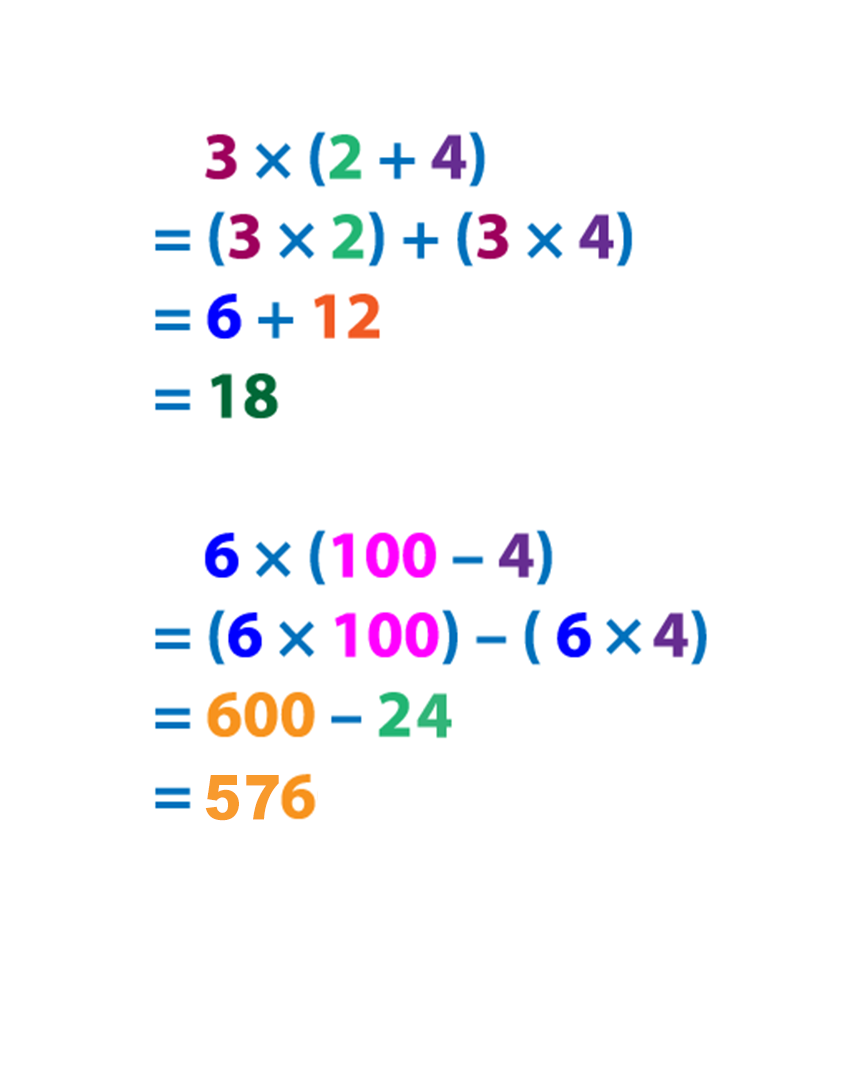distributive
This term states that multiplying a number by a group of numbers which have been added together, is the same as doing each multiplication separately:
a × (b + c) = a × b + a × c for all values of a, b, c.
For example:
-
4 (50 + 6)
= (4 × 50) + (4 × 6)
= 200 + 24
= 224
This is also true about multiplying a number by a group of numbers which have been subtracted.
For example:
-
4 × (50 – 2)
= (4 × 50) – (4 × 2)
= 200 – 8
= 192
In both examples above, the 4 is ‘distributed’.

